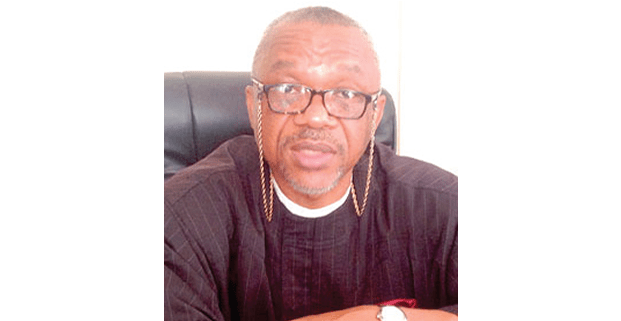
At this period when Nigeria is passing through one of its worst political and security challenges, it has no doubt become imperative for the political leaders and decision makers to consider employing the instrument of political problem solving called bipartisanship. Majority of Nigerians believe and insist that the question of Nigeria’s unity is not negotiable, yet they find it difficult to shift political grounds, even in the interest of the national unity which they so fervently preach. Bipartisanship in many developed or even developing countries has been found to be the most potent solution to knotty political jams capable of threatening the unity of any country, in a “give and take” manner.
Moreover, in the present situation where Nigeria as a country has become highly divisive and extremely partisans, there is the need to seek any civilized possible means of de-escating tensed situations such as what we find in several zones including the North-East where the Boko Haram insurgency is going on; and the South-East where Indigenous People of Biafra (IPOB) activities pose a source of concern. Even in the absence of a national ideology, Nigerians are united in their belief that government is meant to serve humanity and should pursue policies that guarantee happiness and freedom of all people.
Nigerian leaders need not play politics with policies or programmes which impact or touch on the education, well-being and the poverty alleviation of the ordinary people of Nigeria. Equally, politicians must discourage killings and insurgent activities and seek mediation and peace building efforts to heal the economic and social life of the people.
Our leaders and parliamentarians should learn to close ranks whenever our national interest is at stake and ensure that our unity is not questioned by partisanship. At the moment there is no doubt about the seeming uncertainty surrounding the conduct and outcome of the forthcoming general elections of 2019.
To make matters worse, political actors unfortunately show no sign of taking any concrete de-escalative measures to ensure peace and the protection of lives and property. There is no reason why members of parliament should not consider bipartisanship as a national duty to their country in their quest to achieve the goal of making the lives of their constituents more prosperous and peaceful. Politicising religion and ethnicity among other differences, does no one any good, rather it has a guaranteed potential of planting the seeds of insurrection and conflict.
It is also sad to note that even Nigeria intellectuals and professionals who find themselves in politics do not bring their knowledge and experiences to politics but allow inexperienced and professionless politicians to corrupt and influence them in such a way that the common man is short-changed in terms of providing good governance. One would have expected that professionals and even professors of various disciplines, who find themselves either in parliament or the executive arm of government, would refuse to be corrupted by some of the bad or illiterate ones in politics; but alas, they join and show no difference in their conduct and therefore participate fully in the rat-race for sharp practices.
They even carry the “Ghana-must-go” bags personally in some instances. Politicians must see themselves as part of the process of building peace and ensuring the security of the citizenry through the work they do, either as legislators or ministers. Sizeable part of Nigeria’s local defence spending can be channelled to conflict prevention settlement efforts. It serves no useful purpose to ignore threats to conflicts or keep dilly-dallying until the conflict escalates, before we begin to look for conflict management solutions. Members of the political class, especially those who seek election in the next general elections of 2019 must at all times avoid partisanship in matters that challenges the unity of Nigeria, the wellbeing of the people as well as the security of lives and property of Nigerians, irrespective of religion, tribe or region.
Democracy, they say, is a consensual arrangement which derives its legitimacy from the people who elect politicians to govern them. Once the people lose confidence in their elected (or selected) leaders, particularly in the processes of election or selection as well as the ability to provide for the security and welfare of their constituents; the people are naturally bound to withdraw their support for the government in power. This has in many countries, led to revolts and revolutions. The partisan role of some management and staff of public institutions under the control of the Federal Government during elections is most undesirable and unspeakable.
Such public institutions as the Independent National Electoral Commission (INEC), the Nigeria Police Force (NPF), the Nigerian Army (NA), allow themselves to be used as willing tools in the hands of politicians, especially people and government in Power. On election days, staff of these institutions behave and act as if they were recruited solely to ensure that people and government in power are returned to office at all costs.
This they sometimes do by aiding and abetting falsification of election results in favour of the “highest bidder”. These acts of corruption by members of staff of the electoral body, the police, the army and other security services must be condemned and measures taken by both the public and patriotic people in government, to stop the primitive and undemocratic practice. Politicians and indeed all Nigerians must be taught to pay allegiance to the motherland and not to the political party, president or governor. The interest of the nation must be placed above all other things.
Ambassador Nkire is Chief Advisor, Sam Nkire Advisory.
END

Be the first to comment